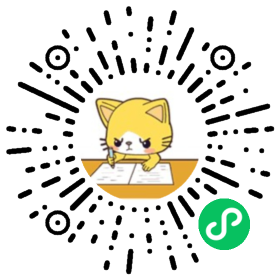相关试题
【单选题】
假设已实现充分就业,且总供给曲线为一垂直线,则减税会导致实现产出水平的价格水平上升。___
【单选题】
最后贷款人最能体现中央银行是“银行的银行”。 ___
【单选题】
在一个资本可以自由流通的开放经济中,当其他条件不变时,紧缩性的货币政策将导致产出上升和本国货币升值。___
【单选题】
可转换证券其实是一种普通股票的长期看涨期权。___
【单选题】
风险转移的方法包括保险、套期保值、互换。___
【单选题】
如果一个企业提高其商品价格后,发现收入下降,这表明商品需求富有价格弹性。___
【单选题】
在充分就业时,总供给曲线是垂直线,紧缩的财政政策将降低价格水平但对实际产出不影响。___
【单选题】
根据凯恩斯的流动性偏好理论,当预期利率上升时,人们会抛售债券而持有货币。___
【单选题】
在商业银行的资产中, 流动性最强的是实物资产。___
【单选题】
本币贬值有利于改善一国的旅游和其他服务收入。___
【单选题】
在其他条件相同的情况下,最愿意购买保险的人是那些最可能需要它的人,这种现象称为道德风险。___
【单选题】
中央银行出售证券导致准备金减少。___
【单选题】
央行在公开市场业务上大量抛售有价证券,意味着货币政策收紧。___
【单选题】
根据内外均衡的理论,当一个经济体处于通货膨胀和国际收支逆差的经济状况时,应该采用紧缩国内支出,本币贬值政策搭配。___
【单选题】
可转换债券兼具债券和股票的特征。___
【单选题】
欧元对人民币的汇率,一般可以看作是基本汇率。___
【单选题】
私人购买住房的支出,包含在私人消费之中。___
【单选题】
商业银行发行金融债券,核心资本充足率不能低于5%。___
【单选题】
商业银行的核心资本包括实收资本、资本公积、盈余公积、未分配利润、少数股权等。___
【单选题】
资产负债表详细反映公司在某一个时间段资产、负债和所有者权益的状况。___
【单选题】
中国人民银行公布的存贷款基准利率属于名义利率,各家金融机构实际操作中在规定范围内与客户商定的利率属于实际利率。___
【单选题】
银行金融创新应当遵循一定的基本原则,应做好客户评估和识别工作,针对不同客户群提供不同的金融产品和服务。___
【单选题】
我国债券市场由银行间债券市场与交易所债券市场共同组成。___
【单选题】
银行可以进行短期融资券的承销和投资业务。___
【单选题】
银行市场定位时只能采用一种策略。___
【单选题】
个人住房贷款的计息结息方式由央行确定。___
【单选题】
公积金个人住房贷款利率相对较低。___
【单选题】
商业银行查询个人信用报告时应当取得被查询人的口头授权。___
【单选题】
根据《巴塞尔新资本协议》,在信用风险评级标准法下,商业银行不得通过信用衍生工具进行信用风险缓释。___
【单选题】
申请授信的单一法人客户应向商业银行提交的基本信息包括近3年经审计的资产负债表.利润表等;成立不足3年的客户,提交自成立以来各年度的报表。___
【单选题】
实践表明,单一法人客户的各项周转率越高,盈利能力和偿债能力必然就越好。___
【单选题】
一个债务人只能拥有一个债项评级。___
【单选题】
压力测试主要采用敏感性分析和情景分析方法。___
【单选题】
经济资本能够用于弥补银行的预期损失和非预期损失。___
【单选题】
其他条件不变,贷款增加意味着融资缺口减少。___
【单选题】
商业银行采用情景分析的目的是测试单一风险因素的假设变动对组合价值的影响。___
【单选题】
商业银行交易账户的项目通常按历史成本定价。___
【单选题】
操作风险是指由于不完善或有问题的内部程序,人员及系统或外部事件所造成损失的风险。___
【单选题】
培养开放、互信、互助的机构文化是声誉风险管理的内容。___
【单选题】
商业银行内部的性别/种族歧视事件属于声誉风险的范畴。___
推荐试题
【单选题】
在信贷资金总量一定的情况下,信贷资金周转速度、流动性、安全性、效益性的关系是___。
A. 周转速度快,流动性就越强,安全性就越能得保证。但效益性较差
B. 周转速度快,流动性就越强,安全性就差,效益性较差
C. 周转速度慢,流动性就越差,安全性也就越差,效益性较差
D. 周转速度慢,流动性就越差,安全性也就越好,效益性较好
【单选题】
以下措施不能提高商业银行经营流动性和安全性的是___。
A. 存贷款期限结构匹配
B. 提高存货周转速度
C. 提高应收账款的周转速度
D. 提高二级市场股票的换手频率
【单选题】
下列属于直接融资的行为有___。
A. 何某向工商银行借款100000 元专门用于其企业的工程结算
B. A 公司向B 公司投入资金8000000 元,并占有B 公司30%的股份
C. A 公司通过融资机构向B 公司借款600000 元
D. 何某通过金融机构借入资金120000 元
【单选题】
下列不属于借款申请需明确内容的是。___
A. 基本情况
B. 贷款品种
C. 贷款利率
D. 贷款金额
【单选题】
下列关于贷款种类说法,错误的是___
A. 按照贷款币种可分为人民币贷款和外币贷款
B. 按照贷款期限可分为短期贷款和中长期贷款
C. 按照贷款对象可分为生产企业贷款和外商投资企业贷款
D. 按照贷款利率可分为浮动利率贷款和固定利率贷款
【单选题】
下列不属于间接融资的行为有___。
A. 文小姐向银行借款10 万元专门用于其房屋装修
B. A 公司购入B 公司20%的股权,价值80 万元
C. 赵小姐春节期间通过信用卡透支了2 万元购买年货
D. 郑先生通过银行贷款购买了一辆车
【单选题】
调查的基本要求:熟知客户和客户的业务,取得必要的客户信息资料和信贷业务信息资料,并核实资料的___。
A. 真实性
B. 完成性
C. 可操作性
D. 全面性
【单选题】
商业银行在信贷过程中保持贷款种类和期限的多样化是为了保持信贷的___。
A. 效益性
B. 流动性
C. 安全性
D. 自主性
【单选题】
企业向银行借款属于____,发行债券、股票属于____。___
A. 直接融资;间接融资
B. 间接投资;直接投资
C. 间接融资;直接融资
D. 直接投资;间接投资
【单选题】
关于商业银行“安全性、流动性和效益性原则”的说法,不正确的是___。
A. 为了保证贷款的安全性,商业银行需要合理安排贷款的种类和期限
B. 在信贷资金总量一定的情况下,资金的周转速度加快,效益性相应较差
C. 在贷款规模一定的情况下,一般贷款期限越长,收益越大
D. 贷款期限越长,安全性越高
【单选题】
按贷款用途划分,公司信贷的种类不包括___
A. 基本建设贷款
B. 技术改造贷款
C. 流动资金贷款
D. 自营贷款
【单选题】
___是指特定产品要素组合下的信贷服务方式,主要包括贷款、担保、承兑、信用支持、保函、信用证和承诺等。
A. 交易对象
B. 信贷产品
C. 信贷金额
D. 信贷期限
【单选题】
银行市场细分是根据___差异对市场进行的划分。
A. 信贷产品
B. 卖方银行
C. 买方客户
D. 信贷市场
【单选题】
贷放分控是指银行业金融机构将___作为两个独立的业务环节。
A. 贷前申请与贷款审批
B. 贷款审批与贷款发放
C. 贷款发放与贷款清偿
D. 贷款申请与贷款清偿
【单选题】
除贷款外,商业银行的资金一般主要用于___。
A. 结算业务
B. 代理业务
C. 存款业务
D. 资金业务
【单选题】
___是银行在商业汇票上签章承诺按出票人指示到期付款的行为。
A. 承兑
B. 担保
C. 贷款
D. 公司信贷
【单选题】
在银行流动资金贷前调查报告中,借款人财务状况不包括___。
A. 流动资金数额和周转速度
B. 主要客户、供应商和分销渠道
C. 资产负债比率
D. 存货净值和周转速度
【单选题】
公司信贷的借款人指___
A. 经工商行政管理机关(或主管机关)核准登记的自然人
B. 经行政机关核准登记的企(事)业法人
C. 经行政机关核准登记的自然人
D. 经工商行政管理机关(或主管机关)核准登记的企(事)业法人
【单选题】
贷前调查中最常用、最重要的方法,同时也是在一般情况下必须采用的方法是___。
A. 现场调研
B. 搜寻调查
C. 委托调查
D. 突击检查
【单选题】
影响行业的外部因素不包括___
A. 国民经济
B. 外部经济
C. 国家政策
D. 企业自身规模效益
【单选题】
银行在对客户进行借款需求分析时,不需要关注的是___。
A. 企业的借款需求原因,即所借款项的用途
B. 企业的还款来源
C. 企业还款的可靠程度
D. 公司的治理结构
【单选题】
以下导致企业流动资产增加的因素不包括___。
A. 季节性销售增长
B. 长期销售增长
C. 资产效率下降
D. 债务重构
【单选题】
主营业务指标通常指主营业务收入占___的比重。
A. 营业额
B. 总资本
C. 全部利润
D. 销售收入总额
【单选题】
以下关于流动比率和企业资产的变现能力关系的说法中,正确的是___
A. 流动比率越高,说明企业资产的变现能力越强
B. 流动比率越高,说明企业资产的变现能力越弱
C. 流动比率越低,说明企业资产的变现能力越强
D. 流动比率与企业资产的变现能力没有关系
【单选题】
以下各项中不能反映应收账款的营运能力的是___。
A. 应收账款周转率
B. 应收账款回收期
C. 应收账款账龄
D. 应收账款余额
【单选题】
以下不属于所有者权益项目的是___
A. 未分配利润
B. 资本公积
C. 盈余公积
D. 流动资产
【单选题】
法人贷款业务,申请信贷业务的客户应当是经___核准登记的企业(事业)法人其他经济组织。
A. 工商行政管理机关(或主管机关)
B. 国税局
C. 人民银行
D. 农村信用社
【单选题】
下列因素与借款人的偿债能力无关的是___。
A. 盈利能力
B. 营运能力
C. 资本结构
D. 产品竞争力
【单选题】
下列关于资产负债率的论述中,错误的是___
A. 资产负债率=负债合计÷资产合计×100%
B. 资产负债率=资产合计÷负债合计×100%
C. 资产负债率反映项目各年负债水平、财务风险及偿债能力
D. 银行从债权安全的角度考虑,总希望借款人的负债水平低一点
【单选题】
下列公式中,不能反映存货周转速度的是___
A. 销货成本/平均存货余额×100%
B. 存货平均余额×计算期天数/销货成本
C. 计算期天数/存货周转次数
D. (期初存货余额+期末存货余额)/2
【单选题】
下列不属于资产负债表的基本内容的是___
A. 资产
B. 负债
C. 资本结构
D. 所有者权益
【单选题】
下列不属于企业财务状况风险的是___
A. 借款人在银行的存款有较大幅度下降
B. 应收账款异常增加
C. 流动资产占总资产比重下降
D. 短期负债增加适当,长期负债大量增加
【单选题】
所有者权益代表投资者对企业___所有权。
A. 全部资产
B. 全部负债
C. 净资产
D. 流动资产
【单选题】
商业银行对借款人最关心的就是其现在和未来的___。
A. 技术水平
B. 销售业绩
C. 偿债能力
D. 信息披露
【单选题】
一般企业贷款操作流程:___
A. 建立正式客户-评级-授信-申请贷款-发放贷款
B. 建立正式客户-授信-评级-申请贷款-发放贷款
C. 建立正式客户-申请贷款-评级-授信-发放贷款
D. 建立正式客户-申请贷款-授信-评级-发放贷款
【单选题】
借款人盈利能力的比率通过___反映。
A. 效率比率
B. 杠杆比率
C. 流动比率
D. 营业利润率
【单选题】
借款人还款能力的主要标志就是___。
A. 借款人的现金流量是否充足
B. 借款人的资产负债比率是否足够低
C. 借款人的管理水平是否很高
D. 借款人的销售收入和利润是否足够高
【单选题】
到的比率。___
A. 平均存货余额,销货收入
B. 销货收入,平均存货余额
C. 销货成本,平均存货余额
D. 平均存货余额,销货成本
【单选题】
反映客户长期偿债能力的比率是___
A. 流动比率
B. 资产负债率
C. 净利润率
D. 速动比率



